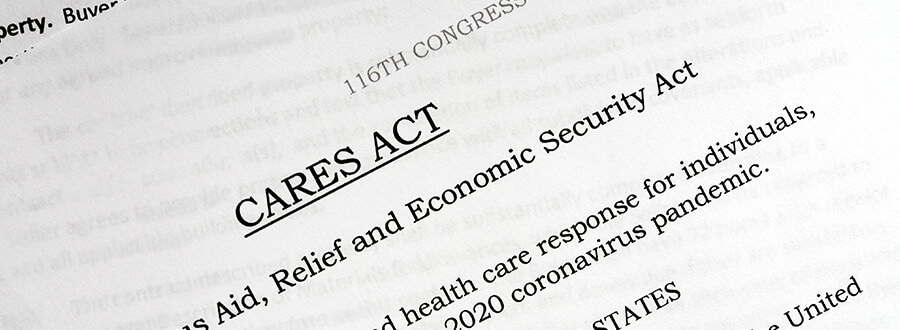Key Points
- The latest stimulus package approves the third round of stimulus checks.
- The bill extends enhanced unemployment benefits of $300 per week through September 6, 2021.
- Relief increased the Child Tax Credit and aims to pay parents monthly starting in July 2021.
- The re-opening of the Healthcare Market Exchange allows unemployed workers to apply for healthcare through Healthcare.gov.

On March 11, 2021, the president signed another stimulus package providing additional COVID-19 relief. While the most talked about part of the stimulus includes checks to millions of moderate to low-income consumers, other benefits could help as you face the financial consequences of a global pandemic.
3rd Round of Stimulus Checks
The latest stimulus package includes $1,400 payments to adults and all dependents regardless of age. The first two stimulus checks eliminated payouts to dependents over 16, which impacted dependent college students, children who support elderly parents, and those supporting disabled adults.
The tradeoff was a lower phase-out of payments. The phase-out begins at $80,000 for single filers, $120,000 for heads of household, and $160,000 for a couple filing a joint return. If your payment would have been higher in 2020, and you file before July 15, 2021, the IRS will automatically process a check for the difference.
The IRS will use either 2019 or 2020 tax returns, depending on whether you have filed taxes this year or not.
Added A Stimulus Child Tax Credit
The latest stimulus package increased the Child Tax Credit to $3,000 for children between 7 and 18 and $3,600 for children under seven. The act also makes the credit 100% refundable and will send parents monthly payments for one year beginning in July, rather than requiring families to wait until they file taxes.
The credit begins to decline for single filers earning over $75,000, head of households earning over $112,500, and couples filing jointly over $150,000. The new thresholds are lower than the existing credit, which begins phasing out at $200,000 for single filers and $400,000 for couples.
Enhanced Unemployment
The federal supplement, adding an additional $300 per week in unemployment benefits, was extended until September 6, 2021. The supplement is in addition to state benefits. The timing of the checks depends on how quickly states process claims. Many states added additional measures to reduce the rampant fraud seen in unemployment claims in 2020 and 2021, which has delayed benefits for legitimate claims.
Taxation of Stimulus Benefits
Stimulus checks: The IRS will not tax any income received from the three rounds of stimulus checks. The bill treats the payments as a tax credit. Technically, the stimulus checks were an advance payment of the Recovery Rebate Tax Credit. Anyone who did not receive the stimulus but now qualifies due to reduced income or received the wrong amount can claim the credit when you file taxes.
Unemployment: Legislation also authorizes the tax-free treatment of the first $10,200 of unemployment benefits.
Changes to Affordable Care Act Insurance
Subsidy increase: The new law increases health insurance subsidies paid out through the Marketplace insurance exchange. Changes could lower out-of-pocket costs or allow enrollees to obtain more comprehensive insurance at a lower cost.
The new legislation dictates that enrollees can pay no more than 8.5% of their income, where the previous subsidies capped payments at 10% of income. The current income cap for subsidies is 400% of the poverty level or $51,000 for an individual or $104,800 for a family of four. The provision is retroactive to January and will last for the next two years.
Re-opened enrollment: In addition to increasing subsidies, the Marketplace exchange, which typically only allows you to enroll in the fall, re-opened to accept new enrollees to accommodate those who lost jobs or faced income changes due to the pandemic.
Uninsured individuals can enroll until May 2021 and receive coverage through Healthcare.gov.
Premium subsidy: The legislation might also pay your monthly premium through September 2021 if you enrolled in a COBRA plan after a layoff. That provision goes into effect on April 1, 2021.
Rent and Utility Subsidies and Mortgage Assistance
The law sets aside $25 billion to help with rent and utility payments. Another $10 billion will help those behind on mortgage payments and prevent foreclosures. The funds are administered through state programs.
